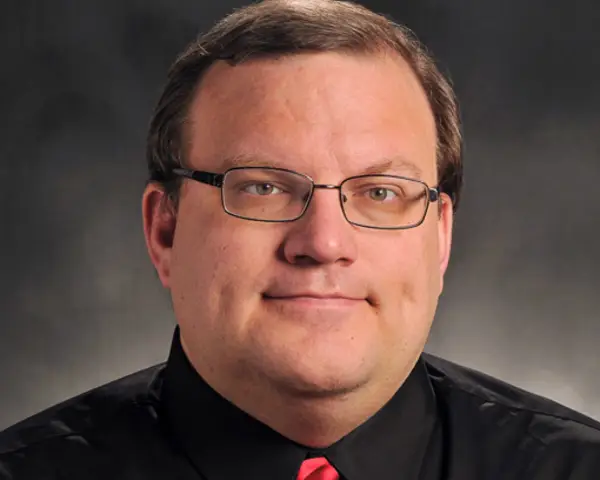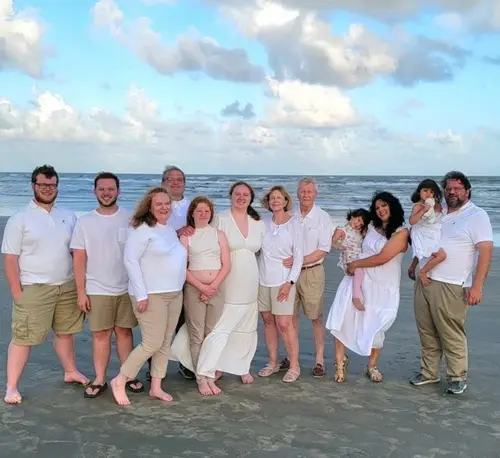Grier Page
Distinguished Fellow

Distinguished Fellow
Postdoctoral, Statistical Genetics, MD Anderson Cancer Center
PhD, Biomedical Sciences, University of Texas Health Science Center at Houston
MS, Biomedical Sciences, University of Texas Health Science Center at Houston
BS, Zoology and Molecular Biology, University of Texas at Austin
Dr. Page shared what sparked his passion for genetics, experiences from his first job, and a book that everyone should read.
My fascination with genetics started in 9th grade AP biology. During that class, we bred drosophila flies, and I was fascinated by the ability to transmit traits such as eye color, body shape, or bristles on legs from generation to generation. That really started my deep dive into genetics.
My first job started shortly after I got a car and was able to drive at 16. I delivered Chinese food for a restaurant called Wok on Wheels. It was eye opening for many reasons. First, it taught me to work fast and efficiently – the more deliveries I made, the more money I made. Secondly and more importantly, it transformed by view of the world. I met a far more diverse group of people with more varied experiences than my suburban upper middle-class childhood. I met chefs from Hong Kong, drivers from Nigeria, a manager from Lebanon, former military people, people who worked at gentlemen’s clubs, people going through 12-step programs, and people who probably should have been in rehab. Some were recent immigrants, others trying to rebuild their lives, most living paycheck to paycheck, and I met people of different religions and learned how family was so important to most of them. I found it personally transformative, and this job has affected how I view and understand people and the world since then.
The Lady Tasting Tea: How Statistics Revolutionized Science in the Twentieth Century by David Salsburg is a fascinating and easy read to dive into the motivational factors and people behind a number of the transformative statistical ideas, including experimental design, randomization, t-test, five sigma, and many others.

Dr. Page loves to garden. Before coming to RTI, his work focused on agricultural genetics. He is transforming his yard into an oasis of flowers along with the help of his wife and children. They’re building a food forest and medium sized-vegetable garden.
Read More about Recipient Epidemiology and Donor Evaluation Study-III (REDS-III)
To speak to this expert or inquire about RTI services, you can reach us at +1 919 541 6000 or use the contact form below. For media inquiries, please reach out to our Media Relations team at news@rti.org.
